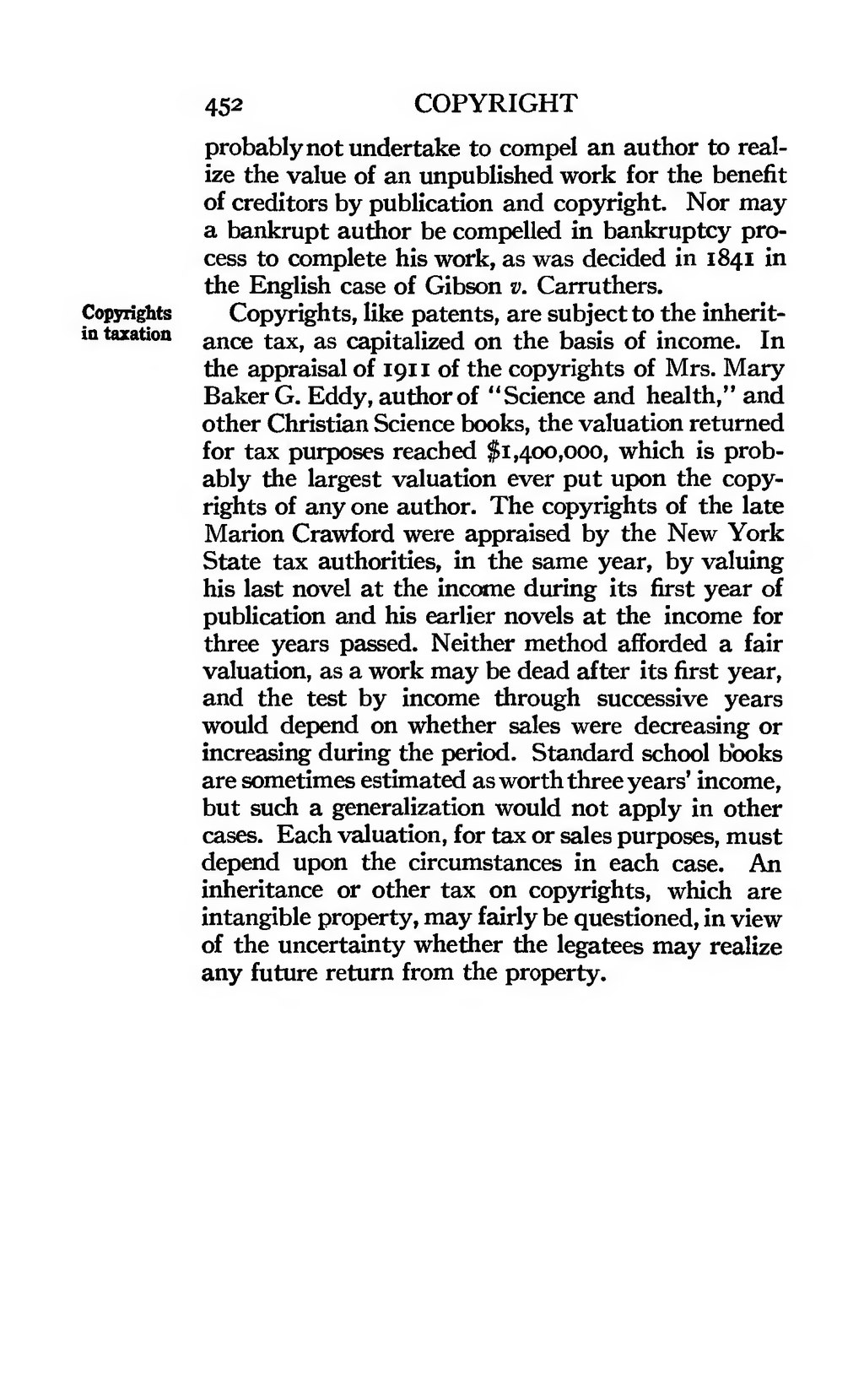452 COPYRIGHT
probably not undertake to compel an author to real- ize the value of an unpublished work for the benefit of creditors by publication and copyright. Nor may a bankrupt author be compelled in bankruptcy pro- cess to complete his work, as was decided in 1841 in the English case of Gibson v. Carruthers. Copyrights Copyrights, like patents, are subject to the inherit- in taxation gjj(,g ^^x, as capitalized on the basis of income. In the appraisal of 191 1 of the copyrights of Mrs. Mary Baker G. Eddy, author of "Science and health," and other Christian Science books, the valuation returned for tax purposes reached $1,400,000, which is prob- ably the largest valuation ever put upon the copy- rights of any one author. The copyrights of the late Marion Crawford were appraised by the New York State tax authorities, in the same year, by valuing his last novel at the inccMne during its first year of publication and his earlier novels at the income for three years passed. Neither method afforded a fair valuation, as a work may be dead after its first year, and the test by income through successive years would depend on whether sales were decreasing or increasing during the period. Standard school books are sometimes estimated as worth three years' income, but such a generalization would not apply in other cases. Each valuation, for tax or sales purposes, must depend upon the circumstances in each case. An inheritance or other tax on copyrights, which are intangible property, may fairly be questioned, in view of the uncertainty whether the legatees may realize any future return from the property.
